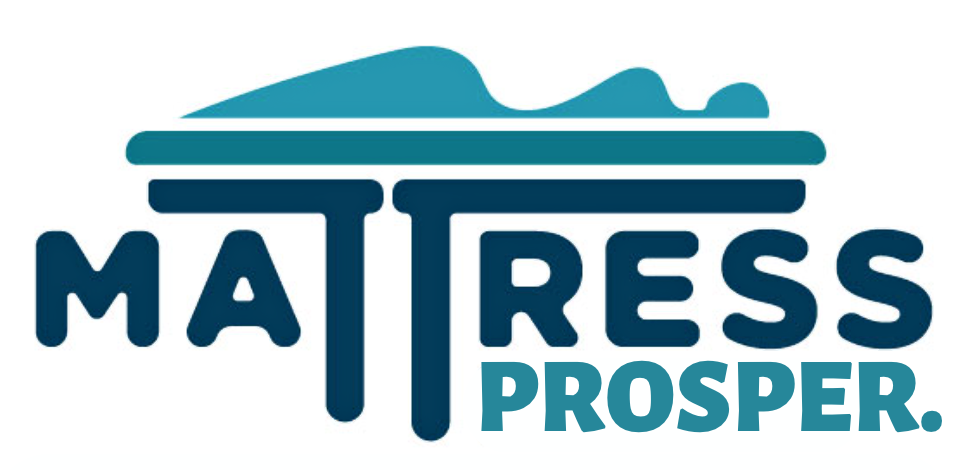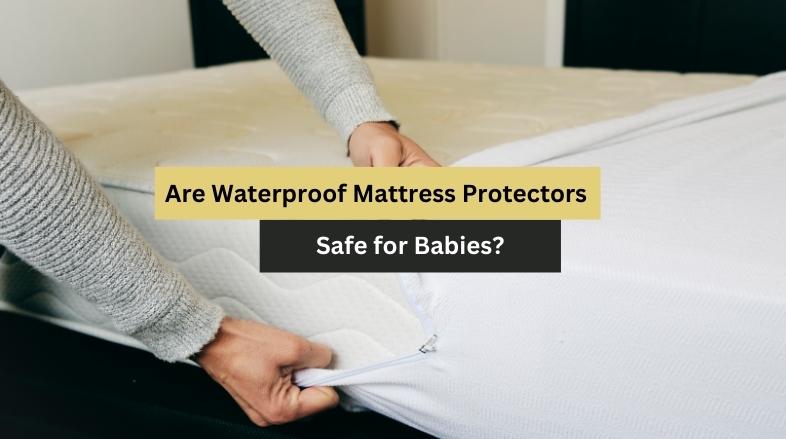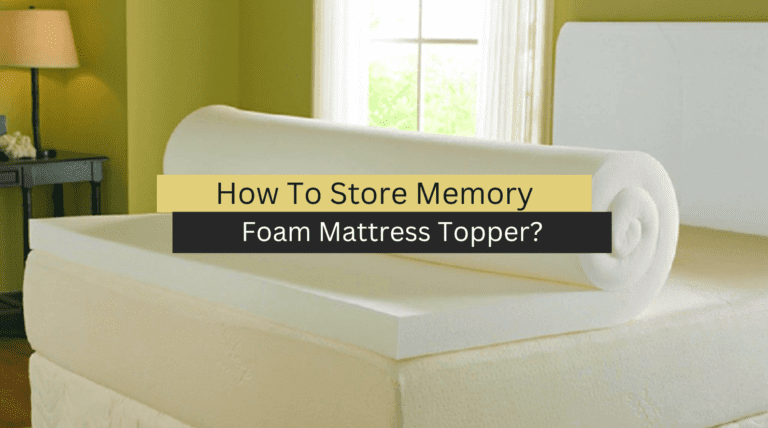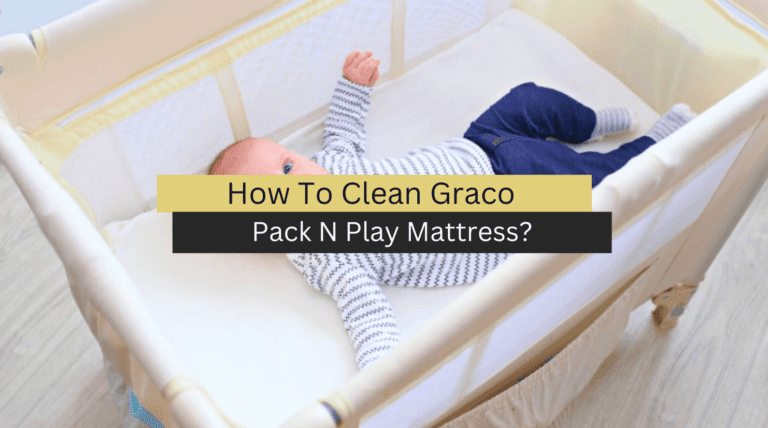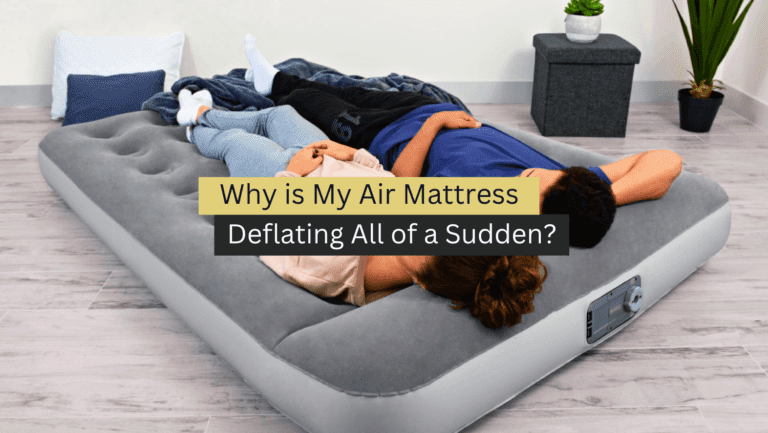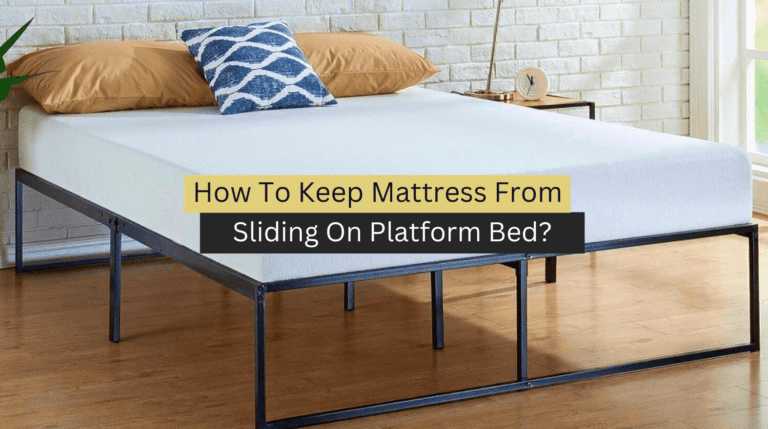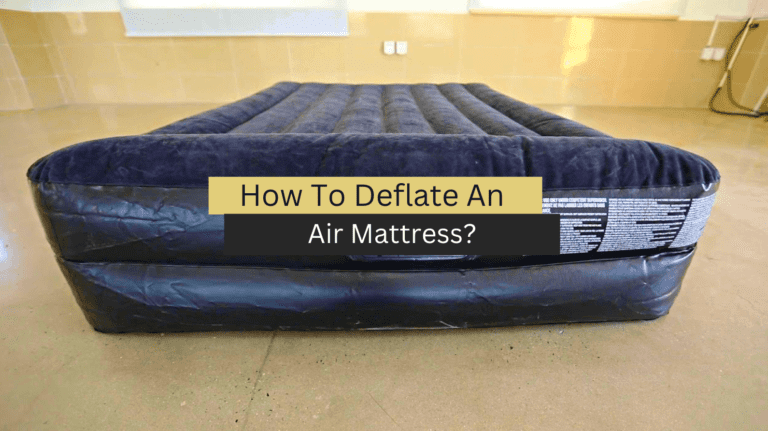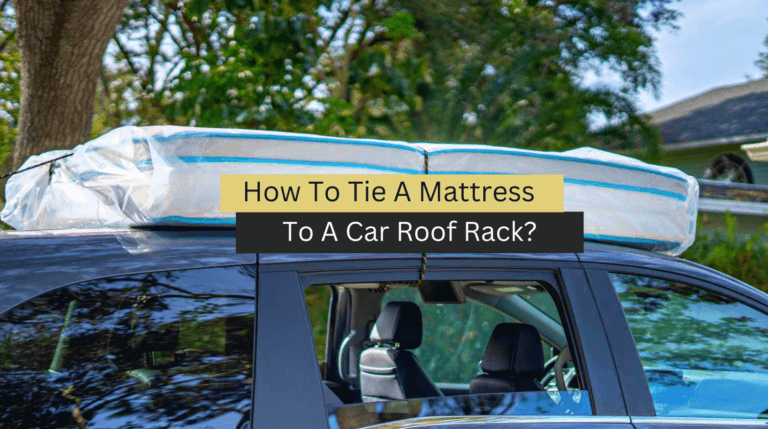Are Waterproof Mattress Protectors Safe for Babies?
If you’re a new or soon-to-be parent, you understand how critical keeping your baby’s mattress clean and dry is. Infants sleep a lot, and their fragile skin is vulnerable to irritants such as dust, dirt, and dampness. Waterproof mattress protectors can come in handy in this situation. A waterproof mattress protector is a layer of protection that sits on top of your baby’s mattress and protects it from spills, leaks, and mishaps.
In this post, we’ll examine why using a waterproof mattress protector is important and how it may help keep your baby’s sleeping environment clean and healthy. We’ll also go over what to look for in a mattress protector and provide some care instructions. You’ll have all the knowledge you need by this article’s conclusion to decide whether a waterproof mattress protector is good for you and your kid.
Are Waterproof Mattress Protectors Safe for Babies?
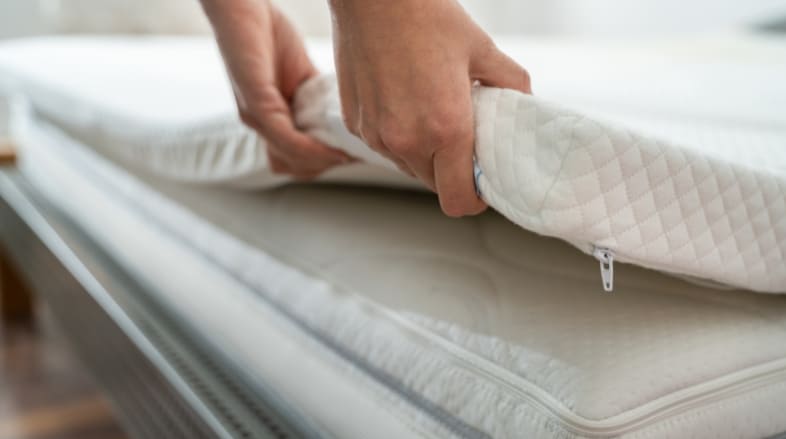
When it comes to our children’s safety, parents are understandably concerned about the goods we use. Waterproof mattress protectors, for example, are intended to keep our children’s sleeping quarters clean and dry. Are they, however, safe to use?
P.V.C., polyurethane, and polyethylene are materials used to make waterproof mattress coverings. While some parents may be concerned about the safety of these materials, they are completely safe for newborns and young children. In fact, these protectors can aid in the prevention of germs and mold growth in the mattress, which can be hazardous to a baby’s health.
However, the potential hazards linked with these protectors must also be considered. Some parents are concerned that the materials used in waterproof mattress coverings would cause their babies discomfort or irritation. But, with correct selection and application, this risk can be considerably reduced.
Waterproof mattress coverings are completely safe for newborns and small children. When selecting protection, it’s critical to look at the materials utilized and make sure they’re high-quality and non-toxic. Parents can help maintain their baby’s resting place clean and dry by supporting better health and more peaceful sleep.
Do I Need a Baby Mattress Protector?
There are numerous factors to consider regarding your child’s health and cleanliness. One of the most critical considerations is that babies sleep in a clean and healthy environment, where a baby mattress protector comes in.
There are various advantages to using a baby mattress protector that can make your life as a parent easier. To begin with, it can shield your mattress from dust, filth, stains, and spills. This means you won’t have to worry about your baby’s messes damaging your costly mattress.
Second, a mattress protector can keep bacteria, dust mites, bed bugs, and potential allergies out of the mattress. This can be a huge comfort for parents concerned about their child’s health and well-being.
Another significant advantage of a baby mattress cover is that it protects against spills, stains, and mishaps. It’s no secret that young children frequently pee on the bed. Waterproof bed coverings can keep their bed dry and allow them to sleep well without worrying about waking up to a soggy bed.
A mattress cover can promote hygiene and sanitation and act as an effective barrier against spills and mishaps. It can help to keep bacteria and allergens from accumulating on the mattress, which can cause skin irritation, allergies, and other health issues.
Therefore, a mattress protector is a must-have item if you wish to provide your infant a clean and healthy sleeping environment. It may protect your mattress from spills, stains, and allergies while also providing a nice night’s sleep for your infant. So, buy a high-quality infant mattress protector today and say goodbye to all your concerns!
What Do Mattress Protectors Do for a Baby’s Bed?
A mattress protector is an essential thing to have while caring for a baby’s bed. They not only provide comfort, but they also provide other benefits to provide a clean, safe, and healthy resting environment. Let us look more closely at what mattress protectors do for a baby’s bed.
Keep the mattress clean and dry
A mattress protector is a barrier between the baby and the mattress, keeping it clean and dry. Accidents happen, and a mattress cover ensures that spills, leaks, or accidents do not penetrate the mattress. This is especially useful for potty training or babies who frequently spit up.
Easier cleaning and maintenance
Mattress coverings facilitate cleaning by keeping fluids above the sleeping surface. They are simple to remove and wash, and many are even dryer safe. This does cleaning and smelling the baby’s bed much easier.
Allergy prevention and reduction of bacteria buildup
A mattress protector can keep bacteria, dust mites, and potential allergens off your mattress. This might be especially essential for babies who have sensitive skin or allergies. It is possible to lessen the likelihood of allergy reactions by keeping the mattress clean and clear of harmful allergens.
Longer mattress lifespan and warranty protection
By preserving the mattress from wear and tear, a mattress protector can help it last longer. Mattress warranties frequently state that the mattress must be kept clean and free of stains or spills. A mattress protector can help give this protection while keeping the warranty valid.
A mattress protector is an essential item for any baby’s bed. It gives comfort and numerous benefits, such as keeping the mattress clean and dry, making cleaning and maintenance easier, preventing allergies, and extending the mattress’s lifespan. Consider elements like as breathability, waterproofing, and material utilized when selecting a mattress protector to offer the best protection for your baby.
Can Waterproof Mattress Protectors Be Breathable?
Many parents are concerned about the ability of waterproof mattress coverings to remain breathable. The answer is that they can! Indeed, breathability is vital when selecting a mattress protector for your baby’s bed.
Breathability refers to how well air can circulate through the mattress protector. This is crucial since it can help keep your infant cool as they sleep. When air can flow through the protector, it can assist regulate your baby’s body temperature and keep them comfortable all night.
So, how can you be certain that the mattress protector you select is breathable? Well, there are a few aspects to consider. Firstly, the type of fabric utilized in the mattress protector can make a great difference. Organic cotton, for example, is a soft and breathable fabric that can help your baby stay cool and comfortable.
Furthermore, the waterproof lining of the mattress protector can affect breathability. Look for protectors with a breathable, waterproof membrane to allow air to pass through. Next, assess the protector’s overall thickness. Thinner protectors are more breathable than bulkier protection.
Overall, selecting a breathable waterproof mattress protector is critical in ensuring your baby’s safety and comfort while sleeping. You may rest easy knowing that your child receives the best possible sleep with the proper protection.
What Type of Mattress Protector Is Best for Babies?
Different Types of Mattress Protectors
When selecting the best mattress protector for your baby’s bed, it’s critical to understand the many options. Encasements, protectors, pads, and toppers are the four basic forms of mattress protectors.
Encasements form a full barrier around the mattress, keeping bed bugs and dust mites at bay. They are helpful for babies who have allergies or asthma. Mattress protectors are intended to shield the mattress from spills and stains. They are waterproof and provide great antibacterial, dust mite, and allergy protection.
Pads are the most basic mattress protector, providing a thin layer of protection from spills and stains. These are great for potty-training babies or those prone to spilling beverages. Toppers are intended to enhance the mattress’s comfort while protecting it from spills, stains, and other irritants.
Factors to Consider when Choosing a Mattress Protector for Babies
Several aspects must be considered while choosing a mattress protector for your baby. To begin with, breathability is critical, and the mattress protector should allow for adequate airflow to keep your infant cool and comfortable during the night. Second, waterproofing is essential for preventing spills and stains on the mattress. It is also critical to consider the mattress protector’s materials.
Cotton is a popular fabric choice because to its softness, comfort, and breathability. Certain cotton mattress coverings, however, may not be completely waterproof. On the other hand, a bamboo mattress protector is a wonderful alternative for babies because it is naturally hypoallergenic, breathable, and waterproof. Next, make sure the mattress protector is properly fitted to the baby’s bed to eliminate any safety hazards.
Do You Put a Fitted Sheet Over a Mattress Protector for a Baby?
When using a mattress protector for your baby’s crib or bed, you may wonder if you should also use a fitted sheet over it. Indeed, a fitted sheet should be used over the mattress protector.
A fitted sheet is a cloth with elastic edges that may be stretched over a mattress to hold it in place. It contributes to the cleanliness of your baby’s resting area by offering an extra layer of protection against spills, stains, and dust.
Using a fitted sheet over a mattress cover is especially crucial for babies and young children who may have accidents or spills. It can help the mattress last longer by keeping liquids from soaking through the protector and onto the mattress.
To ensure maximum protection, using a waterproof mattress protector and a fitted sheet together is recommended. In the event of spills or mishaps, the fitted sheet is placed on top of the mattress protector and is removed and washed.
Using a fitted sheet over a mattress protector is a simple and effective way to protect and clean your baby’s sleeping surface.
Do You Need a Mattress Pad and a Protector?
Utilizing a mattress pad and a protector for your baby’s bed can be advantageous. A mattress pad adds comfort, but a protector keeps the mattress clean and protects it from spills, stains, and allergies. A mattress pad is mostly used for comfort, while a protector is largely intended to protect the mattress.
Having both a pad and a protector can serve different and complementary purposes. A pad can relieve pressure, softness, and comfort and aid in regulating temperature. Conversely, a protector can help prevent dust mites, allergens, and bacteria from accumulating on the mattress and can also help extend the mattress’s lifespan.
To give your baby with a comfortable and safe sleeping surface, it is recommended that you use both a pad and a protector. Remember that a pad is primarily for comfort, whereas a protector is for protection. You can improve your baby’s sleeping experience and extend the life of their mattress by investing in both.
Are Waterproof Mattress Protectors Loud and Hot?
A waterproof mattress protector doesn’t need to be loud and hot. Several manufacturers utilize absorbent fabrics that are intended to help control temperature. However, some mattress coverings might be noisy and hot because of the type of material used for waterproofing. P.V.C. and vinyl, for example, are not breathable and can cause you to wake up hot and sweaty. To avoid this problem, choose protectors made of natural, breathable materials like organic cotton or bamboo. These materials can provide essential waterproofing without losing comfort or breathability. Hence, you can discover a waterproof mattress protector that will not disturb your baby’s sleep with noise or heat.
Conclusion
Finally, a waterproof mattress protector is a must-have for your baby’s bed since it gives a clean, dry resting surface while protecting the mattress from spills, stains, and allergies. Consider elements such as breathability, waterproofing, and material utilized when selecting a mattress protector for your baby. A fitted sheet should be used over the mattress protector for enhanced protection and hygiene. You can provide your infant a safe and comfortable sleeping environment by investing in a high-quality, breathable mattress protector.
F.A.Q.
Should a waterproof crib mattress protector be used?
Absolutely, a waterproof crib mattress protector is recommended to keep your baby’s mattress clean and free of spills, stains, and other potential concerns.
Can a baby sleep on a mattress protector alone?
No, because a mattress protector is not meant to give the required comfort and support for a good night’s sleep, a baby should not sleep on it. A fitted sheet should be used over the mattress protector to provide extra protection and comfort for your infant.
What waterproof mattress protectors are suitable for infants?
When shopping for a waterproof mattress protector for your infant, opt for one made of safe and non-toxic materials, such as organic cotton or bamboo. Look for products certified by reputable organizations like Oeko-Tex or GOTS, and avoid those that contain P.V.C., vinyl, or other hazardous chemicals.
